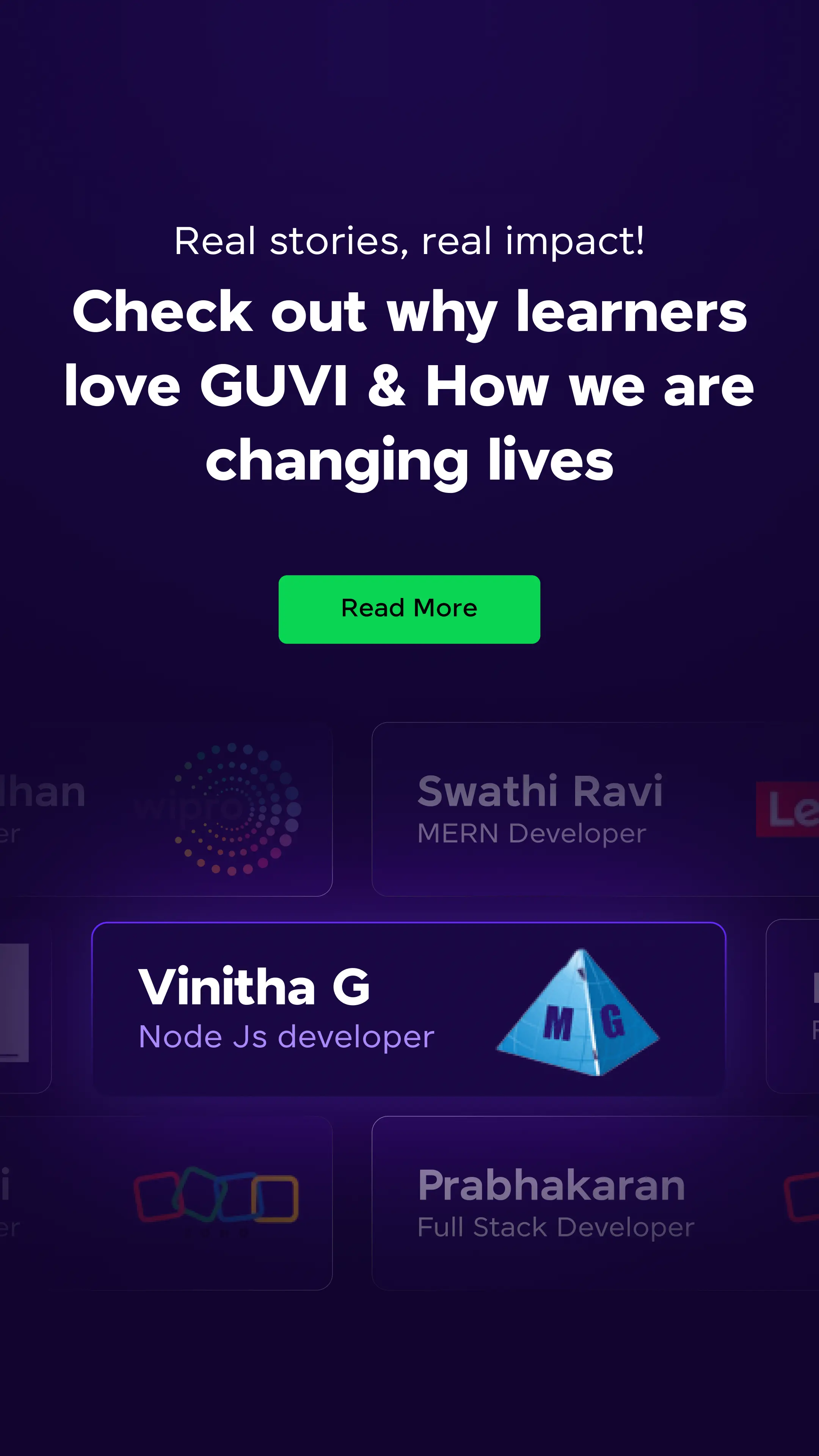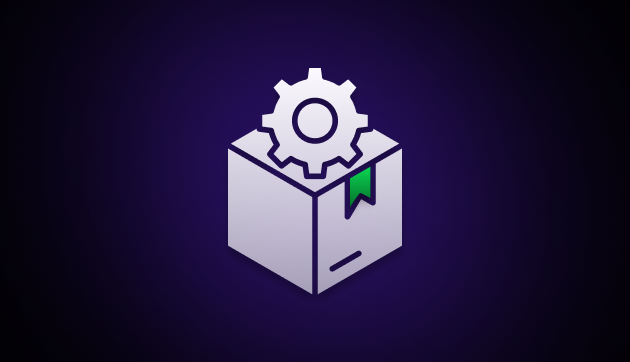
How to Become a Software Engineer Without a Degree? [2025 Guide]
Oct 10, 2025 6 Min Read 5493 Views
(Last Updated)
Have you ever looked at a job posting for a software engineer and thought, “I could do this… if only I had a degree”? If so, you’re not alone. In today’s world, more people are asking a powerful question: Do I need a computer science degree to become a software engineer, or can I build the skills myself and become a software engineer without a degree?
The answer is a resounding yes, especially in India’s rapidly evolving tech ecosystem, where companies are increasingly valuing skills over formal education. According to a recent report, about 30% of Indian companies plan to adopt skills-based hiring by dropping degree requirements (compared to 19% globally).
If you’re an aspiring engineer, this article will show you how you can build a software development career through self-learning. Let’s dive into your journey step by step.
Table of contents
- Who is a Software Engineer?
- Roadmap To Becoming a Software Engineer Without a Degree
- Core Programming Skills
- Computer Science Fundamentals
- Tools of the Trade
- Pick a Specialization (But Not Too Soon)
- Leveraging Online Resources and Learning Platforms
- Working on Projects and Building a Portfolio
- Quick Quiz: Test Your Software Engineering Basics
- Preparing for Interviews Without a CS Degree
- Sharpen Your Data Structures and Algorithms Skills
- Cracking the HR and Behavioral Rounds
- Conclusion
- FAQs
- Is it possible to become a software engineer without a degree?
- What skills are essential for self-taught software engineers?
- How can I gain experience without a formal job?
- Are coding bootcamps a good alternative to a degree?
- What challenges might I face without a degree, and how can I overcome them?
Who is a Software Engineer?
![How to Become a Software Engineer Without a Degree? [2025 Guide] 1 Who is a Software Engineer?](https://www.guvi.in/blog/wp-content/uploads/2025/05/Who-is-a-Software-Engineer_@2x-1200x630.webp)
A software engineer is a professional who designs, develops, tests, and maintains software systems and applications. They use programming languages, engineering principles, and computer science concepts to build reliable, scalable, and efficient software that solves real-world problems or meets user needs.
In simple terms, a software engineer is someone who writes code and thinks structurally about how to build an entire software system, much like how an architect designs a building. Their work can range from developing mobile or web apps to creating embedded software for devices, or even working on complex backend systems that support large-scale services like banking or e-commerce platforms.
Here are the main types of software engineers:
- Frontend Engineer
- Backend Engineer
- Full-Stack Engineer
- Mobile App Developer
- Data Engineer
- Machine Learning Engineer
- DevOps Engineer
Roadmap To Becoming a Software Engineer Without a Degree
![How to Become a Software Engineer Without a Degree? [2025 Guide] 2 Roadmap To Becoming a Software Engineer Without a Degree](https://www.guvi.in/blog/wp-content/uploads/2025/05/Roadmap-To-Becoming-a-Software-Engineer-Without-a-Degree@2x-1200x630.webp)
Embarking on a self-taught path requires a clear roadmap. Since you already know programming basics, you’ll need to plan out what to learn next and how to learn it. Think of this as designing your curriculum. Here are the main components of a solid self-taught roadmap:
1. Core Programming Skills
Deepen your knowledge of at least one or two programming languages. Pick languages that align with the jobs you want.
For example, Python (great for web development, automation, and data science), JavaScript (essential for web development, both front-end and back-end with Node.js), or Java (widely used in enterprise applications and Android development).
2. Computer Science Fundamentals
A degree program would cover fundamentals like data structures, algorithms, and operating system basics, and so should your self-learning plan.
Strengthen your understanding of structures like arrays, linked lists, stacks, queues, trees, and algorithms for sorting, searching, etc. Practice analyzing the time and space complexity of your code.
3. Tools of the Trade
Professional software engineers use a variety of tools. Make sure you learn:
- Version Control: Git is a must-know. Learn how to use Git and platforms like GitHub or GitLab to track code changes. This not only helps in collaboration but is also often expected by employers.
- Development Environment & OS: Get comfortable with the operating system you’ll develop on (many prefer Linux for back-end development or use Linux/WSL on Windows).
- Databases: Understand the basics of databases and SQL. Even if you aim to be a front-end developer, knowing how data is stored and queried is valuable.
- Cloud and Other Technologies (Optional): Modern software engineering often involves cloud platforms and containers. You don’t need to be an expert from day one, but being aware of technologies like Docker (containers) or cloud services (AWS, Azure, GCP) can be a plus.
4. Pick a Specialization (But Not Too Soon)
Software development is a broad field, there’s web development, mobile app development, data science, machine learning, cloud computing, and more. It’s good to explore and find what excites you, but also ensure you build a strong general foundation first.
Once you have core skills, you might choose to specialize. For example, if you love building websites, focus on full-stack web development; if algorithms and analysis interest you, maybe explore data science or AI. Specializing can make you stand out in that area, but even as a specialist, a well-rounded knowledge base will help you adapt to different roles.
5. Leveraging Online Resources and Learning Platforms
One huge advantage of being a self-taught programmer today is the wealth of online resources available. You have thousands of courses, tutorials, and practice platforms at your fingertips. The trick is choosing quality resources and using them effectively. Let’s break down some of the best ways to learn online:
Massive Open Online Courses (MOOCs) and tutorial sites can give you structured learning like a classroom. Many are free or low-cost. Popular platforms and resources include:
- HCL GUVI: (Grab Ur Vernacular Imprint) is an Indian edtech platform powered by IIT-Madras and IIM-A alumni. It stands out by offering tech courses in multiple Indian languages such as Tamil, Telugu, Hindi, and English, making it easier for beginners from regional backgrounds to learn in their comfort language. They offer:
- Structured Courses on Full Stack Development, Python, Java, Data Science, Machine Learning, and more.
- Zen Class: HCL GUVI’s flagship career program, which includes mentor-led sessions, mock interviews, coding challenges, and placement support.
- Codekata & Webkata: Practice platforms for coding and web development challenges, similar to HackerRank or LeetCode, tailored for Indian learners.
- Real-World Projects: Students build deployable apps as part of the curriculum — great for your portfolio.
- Certification: Verified certificates and GitHub-linked progress, which recruiters in India recognize.
- Job Board & Placement Drives: Access to tech jobs through HCL GUVI’s hiring partners.
- Udemy: Udemy has countless programming courses (often inexpensive during sales). You can find a course on just about any technology – e.g., a Python bootcamp, web development masterclass, etc. Just check the reviews and instructor reputation before you pick one.
- freeCodeCamp: This is a fantastic free resource, especially for web development. It provides a structured curriculum for full-stack web development (HTML, CSS, JS, front-end libraries, APIs, etc.), and you build projects along the way. Many self-taught developers in India have used freeCodeCamp to jumpstart their careers.
When using these resources, try to follow along actively. Don’t just watch videos—code with them, pause and experiment, take notes, and do the exercises. The goal is to retain skills, not just consume content.
6. Working on Projects and Building a Portfolio
Projects are your proof of skill. When you don’t have a degree to show, a portfolio of projects becomes your resume in many ways. Employers in India (and everywhere) want to see that you can build something real. Here’s how to go about it:
Start Building, Start Small
Begin with small, achievable projects that reinforce what you’ve learned. For example:
- If you learned web development, build a personal blog site or a simple portfolio website using HTML/CSS/JS.
- If you learned Python, maybe create a script that automates a simple task (like scraping some data from the web or a command-line to-do list app).
- If you are into mobile development, create a basic to-do app or a simple game.
The project doesn’t have to be novel; the goal is to apply your knowledge and learn practical development skills (like debugging, using APIs, etc.). With each project, try to incorporate a new concept.
Quick Quiz: Test Your Software Engineering Basics
![How to Become a Software Engineer Without a Degree? [2025 Guide] 3 Quick Quiz: Test Your Software Engineering Basics](https://www.guvi.in/blog/wp-content/uploads/2025/05/Quick-Quiz-
Test-Your-Software-Engineering-Basics@2x-1200x630.webp)
Let’s take a short break for a quick quiz! This mini-quiz will let you gauge your understanding of some essential software engineering concepts. Ready? Grab a pen and paper (or just your brain) and give these questions a shot:
- Time Complexity: You have an array of n numbers that is already sorted. You want to check if a number x is present in this array. Which algorithmic approach is more efficient?
- a) Scanning through each element one by one (linear search), or
- b) Using a binary search algorithm?
- a) Scanning through each element one by one (linear search), or
- What is the time complexity of the more efficient approach?
- Data Structures: Imagine you need to manage a waiting line of people for a ticket counter. People join at the back of the line, and the person at the front gets served and leaves. Which data structure does this scenario represent? Why?
Code Output: Consider the following snippet of Python code:
numbers = [1, 2, 3, 4]
for i in range(len(numbers)):
numbers[i] *= 2
print(numbers)- What will be the output of this code? (If you’re not familiar with Python, the logic is: take a list of numbers 1,2,3,4 and multiply each element by 2).
Take a moment to think about your answers before reading on. No peeking!
Quiz Answers:
- Binary search is a more efficient approach for a sorted array. Linear search would check elements one by one, taking O(n) in the worst case. Binary search, on the other hand, repeatedly divides the search range in half, which runs in O(log n) time. So (b) is correct, with time complexity O(log n). In other words, binary search is much faster on large sorted arrays because it eliminates half of the remaining elements in each step.
- The scenario describes a queue. A queue data structure works on a FIFO (First-In-First-Out) principle – just like a real queue, the first person in line is the first served, and new people join at the end. We use a queue because it enforces that order: no one can bypass the line. (By contrast, a stack is LIFO, which wouldn’t fit a waiting line scenario.)
- The code will output [2, 4, 6, 8]. The loop goes through each index of the list of numbers and multiplies the element at that index by 2. So the list [1, 2, 3, 4] becomes [2, 4, 6, 8]. (This was a straightforward one – if you got this, you understand basic loops and array/list manipulation!)
How did you do? If you found these easy, great! If you missed one, you’ve identified a topic to review. Quizzing yourself regularly is a good habit to reinforce your learning.
Preparing for Interviews Without a CS Degree
When it comes to landing a full-time software engineering job, you’ll have to go through interviews just like any other candidate.
The challenge (and opportunity) for a self-taught developer is to prove your knowledge and skills throughout the interview process, reassuring employers that you can do the job as well as someone with a formal degree.
Here’s how to prepare and present yourself:
Sharpen Your Data Structures and Algorithms Skills
Nearly all tech interviews for software roles in India will test your problem-solving skills. You’ll face questions on algorithms and data structures – yes, those dreaded “DSA” questions. The good news is you’ve been practicing these on LeetCode, HackerRank, etc., right? Now, intensify that practice with interview-style questions:
- Practice Coding Problems: Solve a variety of problems involving arrays, strings, linked lists, trees, graphs, and algorithms like sorting, searching, recursion, dynamic programming, etc.
- Mock Interviews: Try simulating real interviews. There are websites like Pramp that connect you with other candidates to do mock interviews, or you can ask a friend in the industry to give you a mock interview.
- System Design Basics: For entry-level roles, detailed system design rounds are uncommon, but some companies might ask basic design questions or scenario-based questions (like “How would you design a URL shortener?”). Since you don’t have a formal education background, showing that you understand how larger systems work can impress.
Cracking the HR and Behavioral Rounds
Besides technical skills, you should prepare for HR or behavioral interviews. These are important for any candidate, degree or not, but you want to ensure nothing in your presentation raises a red flag about being self-taught:
- Confidence, Not Arrogance: Be confident about your self-made journey, but avoid sounding defensive or cocky. You might be asked, “Why didn’t you pursue a degree?” You can honestly answer something like, “I found that self-study worked better for me, and I was eager to start building things right away. I have immense respect for formal education, but I chose a different path and made sure to cover the same ground through courses and practical experience.”
- Passion for Coding: Let your enthusiasm show. Companies love developers who genuinely enjoy coding and learning. Talk about a side project you’re excited about or a new technology you started exploring out of interest. This passion often outweighs formal credentials in the eyes of a good interviewer.
Remember, some of the best engineers out there are self-made. They didn’t follow a traditional path, and neither are you. You’re forging your own success story. Stay focused, stay curious, and enjoy the process of becoming a software engineer.
Conclusion
In conclusion, choosing to become a software engineer without a degree is a brave and exciting path. It’s rewarding – you have the freedom to craft your education, but it also demands persistence and self-motivation.
As you’ve seen, you’re not alone on this journey. The tech industry is increasingly welcoming to self-taught talent, in India and globally. Companies care about what you can build and how you can think through problems.
If you ever doubt that, remember that skills-first hiring is on the rise, even in traditionally degree-obsessed India, and many top companies (Google, Apple, etc.) have dropped strict degree requirements, focusing on practical skills instead.
FAQs
1. Is it possible to become a software engineer without a degree?
Absolutely. Many tech companies prioritize practical skills and experience over formal education. By learning programming languages, building a strong portfolio, and gaining real-world experience, you can pursue a successful career in software engineering without a traditional degree.
2. What skills are essential for self-taught software engineers?
Key skills include proficiency in programming languages like Python, JavaScript, or Java, understanding of data structures and algorithms, and familiarity with version control systems like Git. Additionally, problem-solving abilities and effective communication are crucial for collaborating with teams and stakeholders.
3. How can I gain experience without a formal job?
You can start by working on personal projects, contributing to open-source software, or participating in coding challenges and hackathons. These activities not only enhance your skills but also help build a portfolio that showcases your capabilities to potential employers.
4. Are coding bootcamps a good alternative to a degree?
Yes, coding bootcamps offer intensive, short-term training programs that focus on practical skills needed in the industry. They can be a cost-effective and time-efficient alternative to traditional degrees, often including career support services to assist with job placement.
5. What challenges might I face without a degree, and how can I overcome them?
Without a degree, you might encounter skepticism from some employers. To overcome this, focus on building a strong portfolio, obtaining relevant certifications, and networking within the industry. Demonstrating your skills and commitment can help mitigate concerns about formal education credentials.




































Did you enjoy this article?